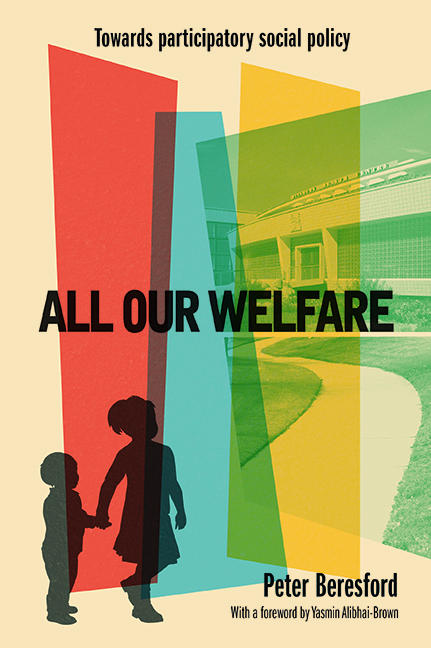Book contents
- Frontmatter
- Contents
- List of photographs and sources
- Foreword
- Dedication
- Acknowledgements
- Introduction Owning not othering our welfare
- Part One The legacy of the past
- Part Two The way to the future
- Afterword The future: a different way forward?
- Appendix One The family
- Appendix Two Research projects and related publications
- References
- Index
Eight - What’s wrong with social policy?
Published online by Cambridge University Press: 01 September 2022
- Frontmatter
- Contents
- List of photographs and sources
- Foreword
- Dedication
- Acknowledgements
- Introduction Owning not othering our welfare
- Part One The legacy of the past
- Part Two The way to the future
- Afterword The future: a different way forward?
- Appendix One The family
- Appendix Two Research projects and related publications
- References
- Index
Summary
As the UK’s leading experts on social policy and the welfare state, we urge the government to reconsider the benefit cuts scheduled for 1 April and to ensure that no further public spending cuts are targeted on the poorest in our society.
(Letter to the Guardian newspaper from Professors of Social Policy, 27 March 2013)Many of us wrote to the prime minister previously urging him to reconsider the social security benefit cuts scheduled for 1 April 2013 and to ensure that no further public spending cuts were targeted on the poorest in our society. Unfortunately our pleas went unheard.
(Letter to the Guardian newspaper from Professors of Social Policy, 6 May 2015)If there was a flaw at the heart of the classic socialdemocratic welfare state, it was the assumption that those operating it were by definition altruistic and trustworthy, together with the accompanying assumption that those receiving its benefits should be passive, patient and grateful.
(Kynaston, 2008, 145)Many of us were brought up to think of nineteenth-century social reformers like Dr Barnardo, Elizabeth Fry, Octavia Hill, Lord Shaftesbury and Robert Owen as heroes of a progressive age, motivated by increasing humanitarian concern. In fact, as we might expect, both their motives and the times were much more complex and ambiguous. For example:
• Shocked by the appalling conditions of women and children in Newgate Prison, Elizabeth Fry (1780–1845) introduced a strict system for supervising the women and imposed compulsory sewing duties and bible reading.
• Octavia Hill (1838–1912), the housing pioneer, regarded poor relief outside the workhouse as ‘a profligate use of public funds’ (Wyatt, 2000, 2). She ‘argued that although workers’ houses were often badly built … they were tenfold worst because of the tenants’ habits’ (Cunningham and Cunningham, 2012, 27). Despite the seasonal nature of employment in London, she insisted on rents being paid regularly as evidence of ‘habits of energy and punctuality’ (Stedman Jones, 1984, 265). She was described by an admirer, as ‘ruling over a little kingdom of three thousand loving subjects with an iron sceptre twined with roses’ (Bremner et al, 1965).
- Type
- Chapter
- Information
- All our WelfareTowards Participatory Social Policy, pp. 141 - 170Publisher: Bristol University PressPrint publication year: 2016



